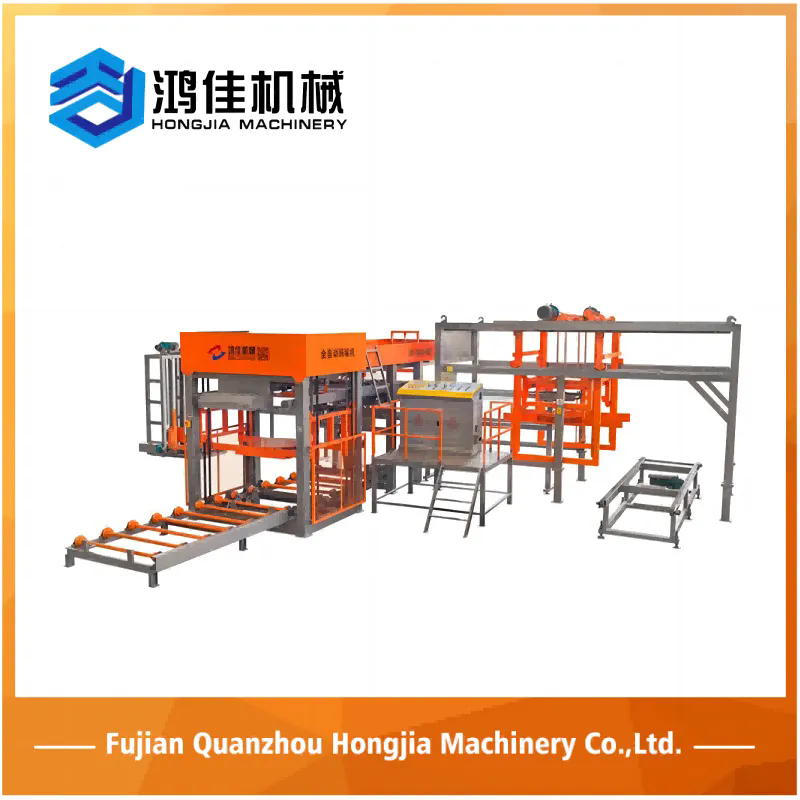Types of Concrete Block Making Machines
2024-07-25
A concrete block making machine is a specialized piece of equipment used in the construction industry to produce concrete blocks and bricks. These machines are designed to efficiently produce blocks of various sizes and shapes for use in building construction. Here are the key features, types, and applications of concrete block making machines:
Key Features
1. Automation Levels:
- Manual: Requires human labor to operate the machine and perform tasks like feeding materials and removing blocks.
- Semi-automatic: Partially automated, reducing the amount of manual labor required while increasing productivity.
- Fully automatic: Fully automated processes, including material feeding, block forming, and curing, ensuring high efficiency and consistency.
2. Production Capacity:
- Varies by machine model, with some capable of producing hundreds to thousands of blocks per hour.
3. Versatility:
- Capable of producing different types of blocks, including hollow, solid, interlocking, and paver blocks, by changing the mold.
4. Material Compatibility:
- Can use various raw materials like cement, sand, gravel, fly ash, and other industrial waste materials.
5. Durability:
- Constructed with high-quality materials to withstand heavy use and harsh working conditions.
6. Customization:
- Machines can be customized to produce blocks of different sizes and shapes according to specific requirements.
Types of Concrete Block Making Machines
1. Manual Block Making Machine:
- Requires manual input for mixing, mold filling, and block extraction.
- Suitable for small-scale production and low-budget operations.
2. Semi-automatic Block Making Machine:
- Features some automated functions like material feeding and block extraction.
- Balances between cost and production efficiency, ideal for medium-scale operations.
3. Fully Automatic Block Making Machine:
- Fully automated with minimal human intervention.
- High production capacity and efficiency, suitable for large-scale industrial production.
4. Mobile Block Making Machine:
- Portable and can be moved to different construction sites.
- Produces blocks on-site, reducing transportation costs.
5. Hydraulic Block Making Machine:
- Uses hydraulic pressure to form blocks, ensuring high strength and uniformity.
- Suitable for producing high-density blocks.
Applications
1. Construction Industry:
- Used to produce blocks for residential, commercial, and industrial building construction.
- Provides building materials for walls, foundations, and pavements.
2. Infrastructure Projects:
- Produces blocks for infrastructure development such as roads, bridges, and retaining walls.
3. Urban Development:
- Supplies blocks for urban planning projects, including parks, sidewalks, and public facilities.
4. Manufacturing of Special Blocks:
- Produces specialized blocks like interlocking blocks, pavers, and decorative blocks for landscaping and aesthetic applications.
Advantages
1. Cost Efficiency:
- Reduces the cost of purchasing pre-made blocks by producing them on-site.
- Minimizes transportation costs and material wastage.
2. Quality Control:
- Allows for better quality control over the production process, ensuring consistency and strength of the blocks.
3. Customization:
- Ability to customize block shapes and sizes according to project requirements.
4. Increased Productivity:
- Enhances production speed and volume compared to manual block making.
Maintenance Tips
1. Regular Cleaning:
- Keep the machine clean to prevent the buildup of cement and other materials that can cause blockages and wear.
2. Lubrication:
- Regularly lubricate moving parts to ensure smooth operation and reduce wear and tear.
3. Inspection and Repairs:
- Periodically inspect the machine for any signs of damage or wear and perform necessary repairs promptly.
4. Proper Storage:
- Store the machine in a dry and secure location when not in use to protect it from weather elements and theft.
Concrete block making machines are essential tools in modern construction, providing a reliable and efficient way to produce high-quality building materials. By understanding their features, types, and applications, you can choose the right machine for your specific needs and ensure optimal performance and longevity.



